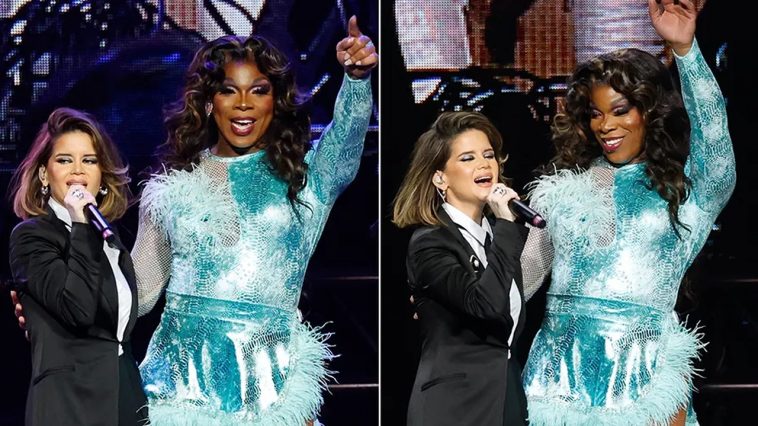Maren Morris, a widely popular country music artist, has made known to her substantial Instagram following of more than 1.6 million, that she recently introduced her toddler son to aspects of the drag queen culture, being unabashed in the sharing of her personal parenting decisions. This action captured quite a bit of attention, as one would expect in today’s hypersensitive social environment.
Morris, who isn’t foreign to controversy, especially in the past year, had previously sparked conversation by challenging her home state, Tennessee, to ‘dare arrest’ her following a similar engagement. That specific incident took place at an event supporting the LGBTQ+ community, where she introduced her young son to the world of drag queens and their performance art.
At that moment, the zeitgeist in Tennessee was somewhat tense, as the state had only recently endorsed legislative measures that would prohibit drag performances in proximity to educational institutions. This political climate set the backdrop for Morris’s controversial actions and primed the public for a potent discourse.
Morris clearly doesn’t shy away from charting her own course, and her interactions with drag queens and the broader LGBTQ+ community demonstrates her commitment to these values. But, as with any public figure, her actions also shine a hot spotlight on the societal debates that are the fabric of today’s United States.
At the heart of these inextricable debates are the ideas of freedom of speech and expression, which frame how we understand Morris’s public actions. On one hand, she is practicing her freedom to expose her son to diverse cultures and lifestyles. However, the flip side of the conversation asks where the line becomes blurred between personal freedom, parenting, and public decency.
While many in the liberal circles applaud Morris for her boldness in standing against societal norms, the sentiment in conservative quarters is understandably different. They see this as an insidious degradation of traditional values, which lay the bedrock for a stable and flourishing society.
As the cultural tectonic plates in America continue to shift, bold actions such as these by public figures serve to accelerate the movement. Parents are left to grapple with this new cultural reality – a world where traditional and often cherished definitions of gender and parenthood are being overturned and redefined.
What is particularly striking in this situation is the decision of Morris to take a public stand so strongly aligned with a single side of the argument, despite her profession being tied to a predominantly conservative fan base associated with country music. This suggests that she values individual authenticity over mass appeal, a trait not common in a world obsessed with popularity and trending subjects.
The key issue here isn’t just about Morris introducing her son to drag queens, but the broader implications that ripple out from such actions. These decisions, played out in the public eye, have ripple effects that shape and influence public opinion, and no more so than in the current, highly politicized climate.
Given the dynamism and complexity of the societal shifts unfolding, it’s perhaps reasonable to expect that our collective reactions to such events will be equally varied and intense. And for some, the actions of Morris will be seen as a stark divergence from conventional parenting strategies and norms that have been in place for generations.
While it’s evident that not everyone agrees with Morris’s decisions and the broader trend they represent, it’s also clear that these choices speak louder than words in carving out what the future of society may look like. They serve as catalytic events that challenge us to re-evaluate our own attitudes and choices, especially in the context of rapidly changing societal norms.
One of the most difficult realities we face as a society is balancing the rights of individuals to express themselves freely, with the common, shared values that guide our communal growth. In essence, that’s the deep question unearthed by Morris’s actions. A situation like this serves to remind all that popular culture is more than just entertainment – it’s a mirror to our society, with the power to both reflect and shape our shared reality.
Furthermore, situations like this exemplify the challenges we face in maintaining the healthy tension between cherished traditions and the freedom to explore and embrace new ones. Morris’s decision to expose her son to a different culture provides a stirring example, regardless of whether one agrees with her approach or not.
In the end, the saga of Maren Morris and her socially charged decisions offer us a real-world discourse on the direction that society is taking. They amplify the dialogue around what freedom and expression mean in our time, especially in the context of parental responsibility and societal norms.
One thing that remains undeniably clear, however, is that in today’s ever-changing social, political, and cultural landscape, public figures like Morris hold considerable power in their hands. The choices they make, the values they uphold, and the messages they send can have a profound influence on the society we live in and the future we are shaping for our children.


